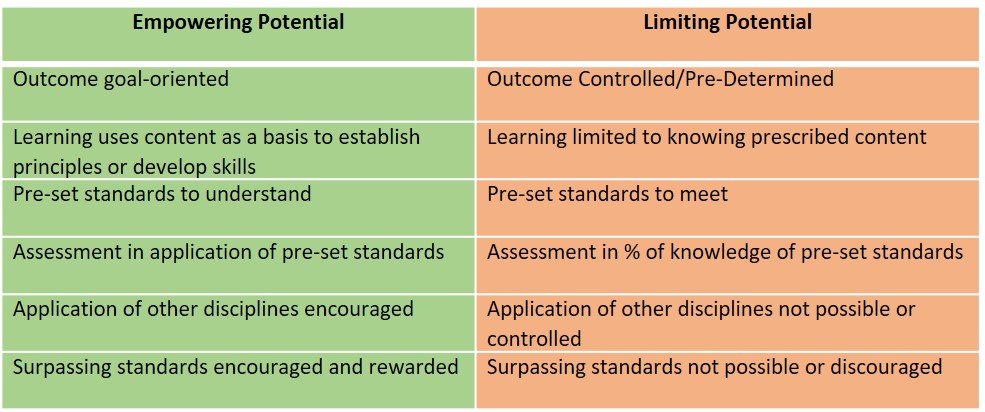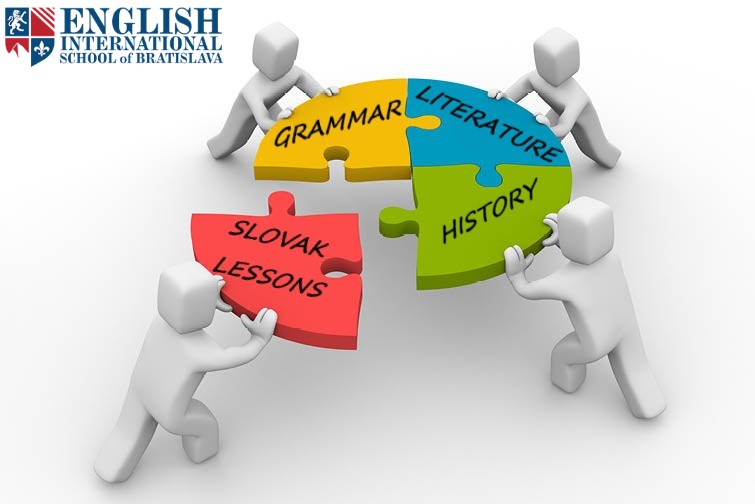Are students being empowered, or are we just getting in the way?

I was recently watching my daughter’s international competition, which is a new sport to me. Obviously, I thought my daughter did great compared to other competitors. However, the scores didn’t reflect my feelings.
Upon questioning, it was explained the scores were made up of Difficulty and Execution. Her Execution, how she did, was quite high, higher than most (justifying my “feeling”), but her Difficulty, the level of the elements in her routine, was lower and where the point difference between the others existed.
The question, then, is was it her ability or the coach who pre-determined the limits of her results?

Back in middle school, I was put in a slower Math track. When I reached High School, my Math teacher noticed that things were too easy for me and we agreed that if I could finish the course by the end of the first semester, I could skip into the next level. I finished the course in a few months. However, the teacher at the next level rejected our petition because, “that’s not how things are done.” Sadly, for the rest of the 4 years of high school, I was forced to simply follow the prescribed Math course which affected my ability to compete at the next level.
Today, learning in this Information Age, there are many more opportunities. Most students spend less free time watching pre-determined programming on TV and more on personalized devices exploring their own areas of interest from multiple sources of information to accomplish and uncountable amount of goals.
They are playing video games with scientific and/or historic content in multiple languages (mostly English) to the point that an 8-year old understands terminology such as plasma, magnetic fields, ion blasters… because this is how they play. This is a generation where a 6-year-old understands that what is seen in a photo is possibly not true, because they understand the concept of photoshop. Where a child can create and broadcast videos that, 20 years earlier, were limited to professional TV stations.
Students today have much more potential than those of the previous generation simply because there is better more motivating access to more information in simple integrated and applicable ways. There is greater access to explore and develop unlimited interests anywhere at any time.
The question remains, are those who are developers of this generation’s youth empowering potential or just getting in the way?

Understanding today’s youth and their learning experience, greatly affect teaching approaches:
It’s not a question of knowing information, but where to find it and what to do with it when you do.
It’s not a question of how to research, but how to do it productively
It’s not a question of how to communicate, but how to communicate effectively
It’s not a question of encouraging curiosity, but employing discipline
As educators, a couple of questions to reflect on:
Are our approaches enabling potential to grow, or pre-determining which skills do what?
Do we have classrooms for the purpose of measuring a percentage of learned knowledge or have we built environments that encourage unlimited learning in ways that enable students to do amazing things?




